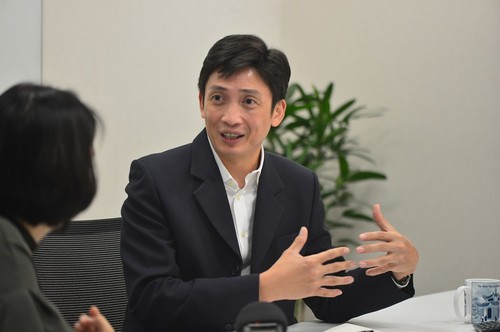 Ketut Ariadi Kusuma, World Bank Senior Financial Sector Specialist. Ketut Ariadi Kusuma, World Bank Senior Financial Sector Specialist. |
VOV reporter: Efforts are being made to create a common market in ASEAN. We all know it will be a long process. What difficulties will ASEAN countries face in this process?
Ketut Kusuma: ASEAN is a favorite investment destination because first, it performed quite well in the past few years than other emerging markets. Second, it provides a good diversification for investors. But the market itself is pretty small when compared with developed markets. If we combine the top six countries from Singapore to Vietnam, we have a capital market of about 3 trillion USD, which is still smaller than Hong Kong alone, not to mention combining the whole mainland China which has 8 trillion USD. When we separate countries, it will become very small. There are certainly benefits to combine the market into a unified common market but in any effort combing the market, just like doing trade agreements, there’s always a challenge. You see the benefits but when you have to do something, it gives you the possibility to gain but also to loose, right? For the long run, it’s non-zero for some games, but in the short term, there will be someone or some businesses who loose the market share when policy makers haven’t got ready. There’s always a challenge when creating a common market.
VOV reporter: What’s your evaluation on the development of the Vietnamese financial market, especially when you compare with other countries in ASEAN?
Ketut Kusuma: I think we know the macro condition of Vietnam has been very good in the past few years which has supported the growth in the financial sector, including the capital market, so the growth in the capital market, the bond market, and the equity market is quite tremendous. I think if we look at ASEAN in general, there is a wide variety of stage of development. Singapore is the top advanced country, followed by Malaysia. And then the three countries of Thailand, Indonesia, and the Philippines are the core of emerging countries. Vietnam is following. And the rest is embryo markets, including Laos, Myanmar, Cambodia, and Brunei. So if you look at ASEAN itself, we can’t characterize it as a one common market even through they are attempting to go there. In this market, there is an intention to create a common market and I think we can see that effort to do it, such as the ASEAN capital market forum as well as the ASEAN capital market working group. Initiatives are already there. But I think if we look at Vietnam itself, Vietnam is a frontier market that is breaking the rank of the emerging market. There is an intention to go there.
VOV reporter: What are the opportunities and challenges for Vietnam once the ASEAN financial market is shaped?
Ketut Kusuma: The challenge is that if you want to join this market you may gain something and lose something. Let me give an example of integrating the equity market. If we connect all the exchanges like Singapore stock exchange, Kuala Lumpur stock exchange, and Ho Chi Minh City stock exchange and the market is very well connected, like Europe, brokers can put orders in other markets. When Singaporean brokers can put orders in Vietnam’s Ho Chi Minh City stock exchange and Kuala Lumpur stock exchange, imagine the liquidity that we can get. That’s the good part. Then the challenge is Vietnam businesses may loose market share, taken by the bigger brokers. For the second example, if we integrate the mutual fund sector, Vietnam can sell the Vietnam fund to Singapore investors and vice versa, Singapore can sell its fund to Vietnamese investors. There is a possibility that we gain Singaporean investment into Vietnam but also there is concern that Vietnam money flows out to Singapore. That’s the biggest challenge in integrating this market.
VOV reporter: Do you have any recommendations for Vietnam’s financial development?
Ketut Kusuma: Vietnam’s performance in the past few years has been quite tremendous. So make it sustainable, we certainly need to broaden the database in Vietnam. We see the participants in the financial market has been limited to bank, some investors, and some individuals so it is needed to increase the pool of savings to the capital market and the financial sector. Another recommendation is attracting foreign investment in Vietnam because I think it’s quite missing in the capital market. To achieve that, several ways need to be done, including the improvement of the framework for Vietnam’s capital market such as corporating disclosure, the governance, and price information dissemination. There is a difference between information available locally from what international investors can see. Improving the dissemination of information, including the price information to international investors, would be key to attracting them. And that would help Vietnam move closer to a more advanced market of the ASEAN region.